6 start with L start with L

As a scholar, William Hung was instrumental in opening China’s rich documentary past to modern scrutiny. As an educator, he helped shape one of twentieth-century China’s most remarkable institutions, Yenching University. A member of the buoyant, Western-educated generation that expected to transform China into a modern, liberal nation, he saw his hopes darken as political turmoil, war with Japan, and the Communist takeover led to a different future. yet his influence was widespread; for his students became leaders on both sides of the Taiwan Strait, and he continued to teach in the United States through the 1970s.
In 1978, he began recalling his colorful life to Susan Chan Egan in weekly taping sessions. Egan draws on these tapes to let a skillful raconteur tell for himself anecdotes from his life as a religious and academic activist with a flair for the flamboyant. His reminiscences encompass the issues and dilemmas faced by Chinese intellectuals of his period. Among the notables who figured in his life and memories were Hu Shih, H. H. Kung, Henry Winter Luce, John Leighton Stuart, Timothy Lew, and Lu Chihwei.
While retaining the flavor of Hung’s reminiscences, Egan explains the evolution and importance of his scholarly work; captures his blend of Confucianism, mystical Christianity, and iconoclastic thought; and describes his effect on those around him. For it was finally his unyielding integrity and personal kindness as much as his accomplishments that caused him to be revered by colleagues and generations of students.
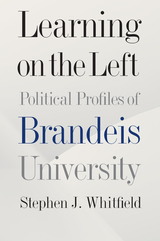
Stephen J. Whitfield makes the case for the pertinence of Brandeis University in understanding the vicissitudes of American liberalism since the mid-twentieth century. Founded to serve as a refuge for qualified professors and students haunted by academic antisemitism, Brandeis University attracted those who generally envisioned the republic as worthy of betterment. Whether as liberals or as radicals, figures associated with the university typically adopted a critical stance toward American society and sometimes acted upon their reformist or militant beliefs. This volume is not an institutional history, but instead shows how one university, over the course of seven decades, employed and taught remarkable men and women who belong in our accounts of the evolution of American politics, especially on the left. In vivid prose, Whitfield invites readers to appreciate a singular case of the linkage of political influence with the fate of a particular university in modern America.
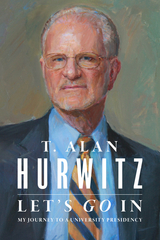
Additional images, videos, and supplemental readings are available at the Gallaudet University Press/Manifold online platform.
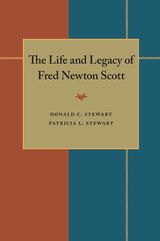
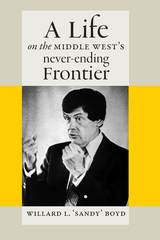
His memoir, interspersed with personal wisdom gleaned over more than six decades of service and leadership, encapsulates Sandy’s shrewd yet optimistic view of the public university as an institution. At every stage in his life—in the U.S. Navy during World War II, while practicing law or teaching, and in leadership positions at Chicago’s Field Museum and the University of Iowa— Sandy relied on his principles of open disclosure, inclusiveness, and respect for differences to guide him on issues that matter.
This chronicle of Sandy’s experiences throughout his life shows us the evolution both of the University of Iowa and of the nation writ large. More importantly, this book gives us a lens through which to examine our present situation, whether debating free speech on campus, the role of the arts and humanities in civil society, or the importance of funding for educational and cultural institutions.
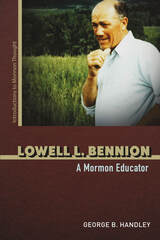
Known in his lifetime for a tireless dedication to humanitarian causes, Lowell L. Bennion was also one of the most important theologians and ethicists to emerge in the Church of Jesus Christ of Latter-day Saints in the twentieth century.
George B. Handley’s intellectual biography delves into Bennion’s thought and extraordinary intellectual life. Rejecting the idea that individual LDS practice might be at odds with lived experience, Bennion insisted the gospel favored the growth of individuals acting and living in the present. He also focused on the need for ongoing secular learning alongside religious practice and advocated for an idea of social morality that encouraged Latter-day Saints to seek out meaningful transformations of character and put their ethical commitments into practice. Handley examines Bennion’s work against the background of a changing institution that once welcomed his common-sense articulation of LDS ideas and values but became discomfited by how his thought cast doubt on the Church’s beliefs about race and other issues.
READERS
Browse our collection.
PUBLISHERS
See BiblioVault's publisher services.
STUDENT SERVICES
Files for college accessibility offices.
UChicago Accessibility Resources
home | accessibility | search | about | contact us
BiblioVault ® 2001 - 2024
The University of Chicago Press









